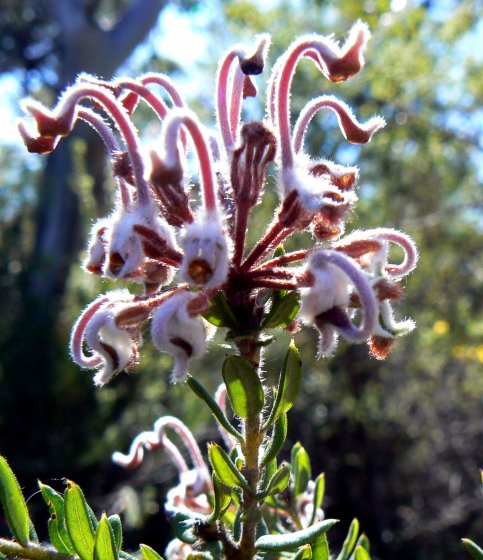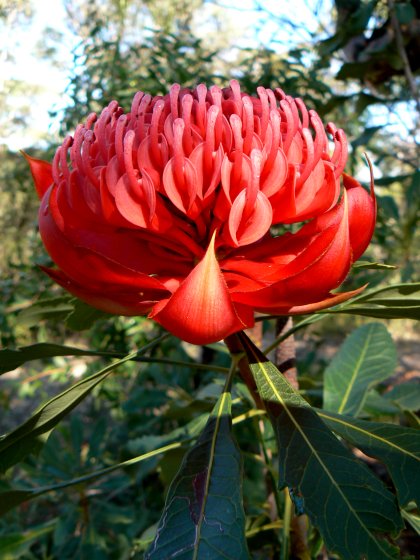
This goanna was a stunner, as interested in us as we were in it. It can't be too old, since they grow to 2 metres, but it looked like it could have done a great deal of damage with those claws. I have a nasty feeling it likes living around here because of the brush turkey eggs and babies. And the frogs. Ah, life's rich tapestry.
And here are some photos that Martien (the spouse) took when he was walking in Berowra Valley this morning. I think I have photographic competition....
Huge day in the garden, today. I've created a new bed, fenced it off from the wallabies, and planted all sorts of goodies. Photos soon!
It's all feeling very spring.


How cold do your winters get, Margaret?
ReplyDeleteIn Castlemaine I can look forward to night time temps as low as -5c and plenty of harsh frosts.
Are rabbits a problem and how do you deal with them?
Hi Melaleuca.
ReplyDeleteWinters here are mild. It gets a bit cooler in my part of Sydney than closer to the coast, in part because we're relatively high in altitude. Last winter it scraped just below Oc once or twice overnight.
Castlemaine is going to be nippy!
As for rabbits, I'm sure that there are some in the national park, but I've never seen them. There are foxes, though, which might keep their numbers down (and alas, the numbers of various marsupials).
Are they a big issue in Castlemaine?
Rabbits are common around Castlemaine. My friends in Castlemaine lay rabbit bait at dusk and collect any that isn't eaten first thing in the morning. This keeps the rabbits under control but I'm unsure how much native critters are being poisoned inadvertently.
ReplyDeleteWestern Grey Kangaroos and Black Wallabies are also common in the area. I'll have to use plant guards to protect young plants.
Having another brief go Lom..
ReplyDeleteWe had a good bird event at our place yesterday Sunday.
The Rainbow Bee-eaters arrived.
Previous day none, Sunday morning several.
They come from tropical Australia each year around this time of the year to breed down here.
Beautiful little critters, we love them.
They will stay a few months, breed in burrows in our cliffface, and then fly back north around March.
cheers
fred